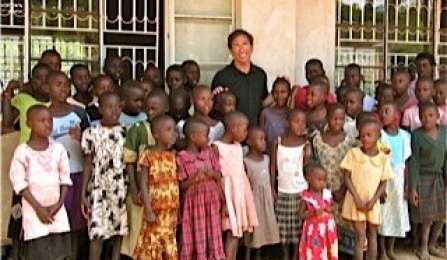Community Health

Ministry of Health Uganda
The Ministry of Health Uganda's vision is a healthy and productive population that contributes to socio-economic growth and national development. They aim to provide health services to all people in Uganda through delivery of promotive, preventive, curative, palliative and rehabilitative health services at all levels. The Office of Global Health Initiatives is partnering with the Ministry of Health Uganda to improve capabilities of community health workers, and to design a project to reduce under age five mortality due to malaria through community-based treatment.
Africa is at an early stage of the tobacco epidemic, which is both a health and a development problem. The CTCA is based in Uganda with a mandate to support governments in African countries to build and sustain institutional capacity for tobacco control. The Office of Global Health Initiatives has facilitated collaborations between CTCA and faculty at the University at Buffalo.
Educate! develops young leaders in Uganda by providing long-term mentorship and leadership and entrepreneurship training. They work with over 3,600 diverse leaders and entrepreneurs across Uganda. The organization has also partnered with Uganda's government and the UN International Labor Organization to transform the national education system with Educate! curriculum. The Office of Global Health Initiatives is partnering with Educate! to produce curriculum to prevent sexual abuse in Uganda.
The India Foundation provides a free medical clinic for street children. The Office of Global Health Initiatives partners with the India Foundation to provide support for the operations of three modest clinics and support the expansion of care for street children.
Johnson Nkosi Memorial HIV/AIDS Orphan Primary School
The Johnson Nkosi Primary School is a collection of classrooms, dormitories, demonstration gardens and play space for children founded to provide a safe and free environment where living with HIV/AIDS carries no stigma. Three hundred and fifty children, ranging from 3 to 17 years old, attend the school. One third or these children are orphans and vulnerable children who attend Nkosi for free. The Office of Global Health Initiatives partners with the primary school to provide a series of public health interventions to prevent illness and improve student health including insecticide-treated bed nets, safe water, sanitary latrines, handwashing and a dispensary.
Nidan
Nidan empowers the poor and marginalized through appropriate community-based and pro-poor participative interventions. They organize informal workers into legal entities, such as associations, cooperatives, etc., thereby increasing their bargaining power with the state and private sector. Their vision is to establish a just, democratic, non-violent society where citizens enjoy their rights (of education, health, and livelihood) without discrimination on the basis of gender or class to live in mutual cooperation without any hindrance. The Office of Global Health Initiatives partners with Nidan in Patna, India, to implement public health interventions focused on handwashing and deworming, safe water and sanitation improvement.
Reach India is a social enterprise that brings proven training and services to disadvantaged girls, women and the organizations that serve them. They provide a network of sustainable service centers--social businesses capable of training thousands of committed local organizations to deliver behavior change education. They are supported by Reach Global, which develops education on health, livelihood and family finance. The Office of Global Health Initiatives partners with Reach India on a project to survey a community about health concerns, and train 10 community health workers. Each community health worker provides education, referral, motivation and health products to 20 women's self-help groups.
The West Bengal Voluntary Health Association was founded in 1974 and initially assisted and guided effective community health care activities through exchange of views and a skill and capacity building training program. Currently, they partner with 50 organizations and operate closely with the governments of West Bengal and India. Their goal is to make health available, accessible and affordable, specifically for those who are marginalized and disadvantaged regardless of caste, creed and religion. The Office of Global Health Initiatives partners with the West Bengal Voluntary Health Association to construct an important training facility in West Bengal focused on improving the status of health workers in Jalpaiguri and Darjeeling.


